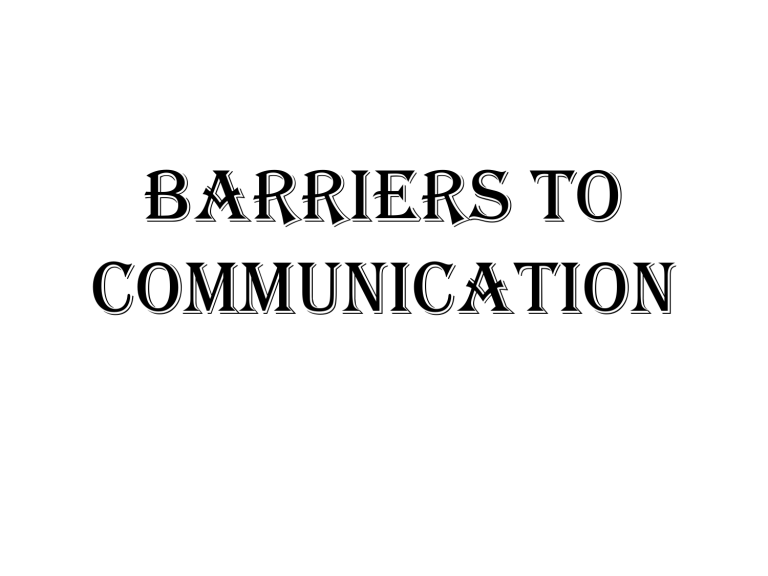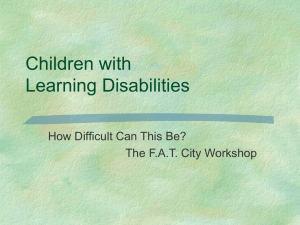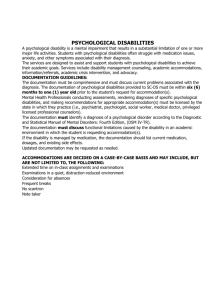
BARRIERS TO COMMUNICATION Some common barriers to effective communication include: • The use of jargon. Over-complicated or unfamiliar terms. • Emotional barriers and taboos. • Lack of attention, interest, distractions, or irrelevance to the receiver. • Differences in perception and viewpoint. • Physical disabilities such as hearing problems or speech difficulties. • Language differences and the difficulty in understanding accents. • Cultural differences. Barriers to Communication by Category 1. Language Barriers • A language movement is a figurative phrase used primarily to refer to linguistic barriers to communication, the difficulties in communication experienced by people or groups speaking different languages, or even dialects in some cases. • Different languages, • Accent 2. Psychological Barriers • The definition of psychological is something that relates to the mind or mental actions. An example of something psychological is an IQ test. An example of something psychological is bipolar disorder. • Attitude and Opinions; • Emotions • Closed Mind 3. Physiological Barriers • Physiology is the state of human body and mind. Physiological barriers of communication occur due to the physical condition of sender or receiver which might even be physical disabilities. It includes sensory dysfunction and other physical dysfunctions. • Poor listening skills. • Discomfort due to illness. 4. Physical Barriers • The physical barrier is the environmental and natural condition that act as a barrier in communication in sending a message from sender to receiver. Organizational environment or interior workspace design problems, technological problems and noise are the part of physical barriers. • Background noise. 5. Attitudinal Barriers • Is a term used for the set of difficulties or challenges experienced by a person with disabilities that results from misunderstanding, confusing or ignoring the disability, using the disability to dismiss the person or to make unfair comparisons about the person’s work performance.





